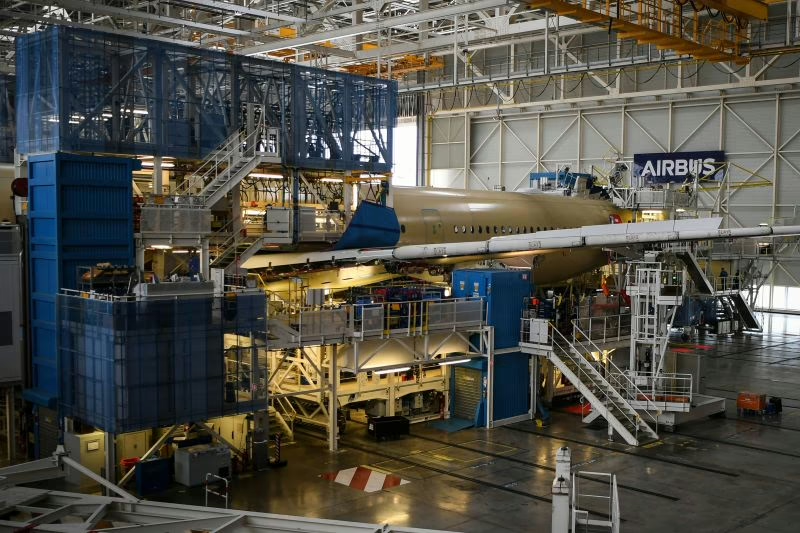
French suppliers are bracing for another tough year but signs that their situation is improving are emerging on at least two fronts—energy prices and cash flow.
In 2023, the supply chain’s struggles and the entire industry’s hiring problems will remain the dominant themes, says Guillaume Faury, chairman of aerospace lobbying association GIFAS and CEO of Airbus. The aerospace sector has been confronted with the persistent challenge of recruiting enough skilled workers and specialists in various domains. More recently, suppliers have had to cope with inflation, loan repayment, the requirement to follow an aggressive aircraft production ramp-up, and long-term investments.
“Suppliers are in a paradoxical situation,” says Martin Sion, president of the GIFAS’ equipment manufacturer committee. “They enjoy strong demand and have to cope with headwinds ... Our role is to ensure the supply chain is resilient.”
Hiring has proved particularly difficult for those small companies based away from large cities. That is one of the goals of a campaign GIFAS launched last year—Aerospace Is Hiring. “Some companies find it hard to promote themselves and find talents,” says Clementine Gallet, president of the GIFAS committee for small companies.
Large OEMs have seen the outcome of such problems. “For last year’s deliveries, we at Airbus had to downgrade our guidance twice,” Faury says. “That was a big frustration. The supply chain has huge problems in its operations. Against that backdrop, we worked miracles.”
To find the right people, especially in new technologies, the industry is in great difficulty, Faury says. “We want employees who are competent in aviation, defense or space and at the same time have skills in cybersecurity, data crunching or artificial intelligence,” he says. In cybersecurity, Airbus has created its own training programs to ensure it has enough specialists.
In 2022, large companies have caused the supply of such experts to dry out, Faury admits. “We are aware small companies must be able to hire some in 2023,” he says. “Otherwise, [the ramp-up] will not work.”
Meanwhile, could skyrocketing energy prices cause some suppliers to suspend activity? Those prices have impacted the entire supply chain, notably small companies with an energy-intensive business where electricity accounts for a significant proportion of production costs.
GIFAS is keeping a close eye on them. Action by the government—including financial support—is beginning to prove effective. “At the end of 2022, we saw a few panic reactions,” Gallet says. “Since the government’s scheme is in place, we can see the first results. Solutions will be found on a case-by-case basis.”
In 2020, in the worst moments of the COVID-19 crisis, an investment fund was created to help suppliers consolidate, or just survive. Companies with an overall healthy financial background but temporary cash-flow problems can receive support. The fund, led by Tikehau ACE Capital, can help them increase capital.
It has worked well, and 50-60 operations of recapitalization have been conducted, according to GIFAS’ numbers. Out of the €750 million ($793 million) raised, about €600 million have been used, GIFAS Director General Pierre Bourlot says. “A lot has been done, such as supporting metallurgy specialist Aubert & Duval,” he says. “We are talking to [Tikehau], and we do not see a need for more fundraising.”
The initial expectation was for the fund to reach €1 billion. “Our reckoning was that, with €1 billion in equity, we would find access to €1 billion in debt,” Faury explains. “The first year saw little activity because companies were using government support, such as state-backed loans. After a certain time, it no longer makes sense to increase the fund’s capital, so we are staying close to €750 million.” In other words, cash-flow issues are well on the way to being curbed.


